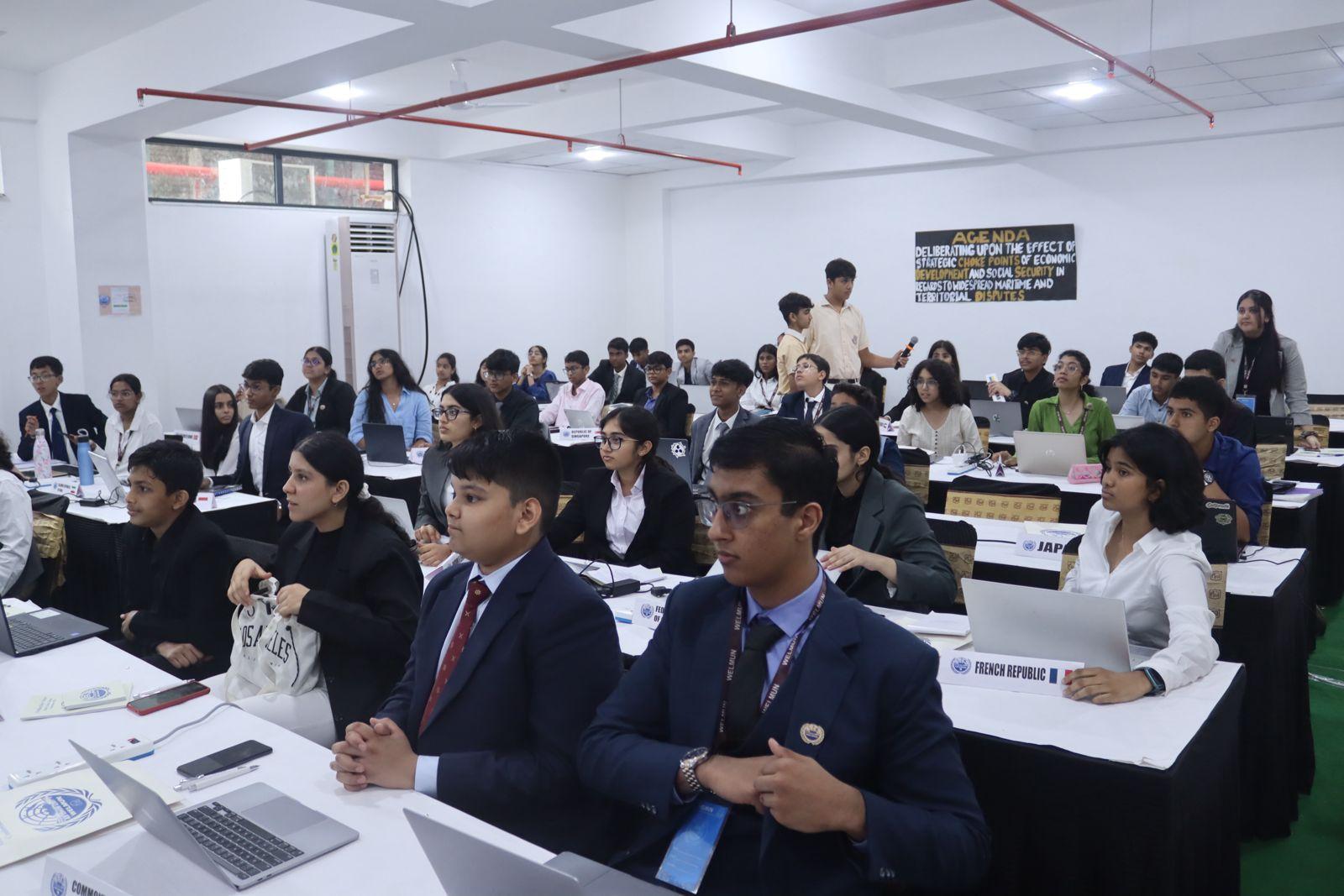About a month ago, I attended my first Model United Nations event.
Welham Boys' Model United Nations was the event I was part of.
I was the 'Delegate of The CommonWealth of Australia'
Our agenda was
'Deliberating upon the effect of Strategic Choke Points on Economic Development and Social Security regarding Widespread Maritime and Territorial Disputes.'
_________________________________________________________________________
Participating in this MUN gave me valuable experience in presenting arguments, responding to challenges, and thinking critically in real-time. As the 'Delegate of The Commonwealth of Australia,' I had to represent the interests of my assigned nation, which involved detailed research on Australia’s policies and its stance on the topic of discussion. The agenda required us to delve into the complexities of strategic choke points and their economic and security implications. I learned to articulate my points clearly and concisely while also considering the perspectives of other nations.
In particular, I developed the following debating skills:
-
Research and Preparation: Effective debating starts with solid research. To construct strong arguments, I had to thoroughly understand Australia’s position on maritime territorial disputes and global trade. This preparation helped me confidently present my points during the sessions.
-
Public Speaking: MUN provided a platform to practice public speaking, where I had to express my ideas in front of a diverse group. Each session improved my ability to deliver speeches confidently, modulate my tone, and maintain composure under pressure.
-
Persuasion and Negotiation: In debates, it’s about presenting your argument and persuading others. I learned to use logical reasoning and evidence-based arguments to sway opinions and build alliances with other delegates.
-
Critical Thinking: During discussions, I often encountered opposing viewpoints. This honed my ability to think critically and quickly respond to counterarguments while respecting others’ opinions.
-
Collaboration and Teamwork: Although MUN simulates a competitive environment, collaboration is crucial for reaching resolutions. Through diplomacy and dialogue, I developed skills in working with others towards a common goal despite differing national interests.
-
Time Management: Debating in a structured environment like MUN requires sharp time management. I had to organize my thoughts efficiently to make my case within the allotted time, ensuring I addressed key points without rushing or leaving out critical information.
These skills are essential for debates and transferable to everyday situations, such as group discussions, presentations, and even personal negotiations. MUN has equipped me with a toolkit to benefit me in my future academic and professional endeavours.

